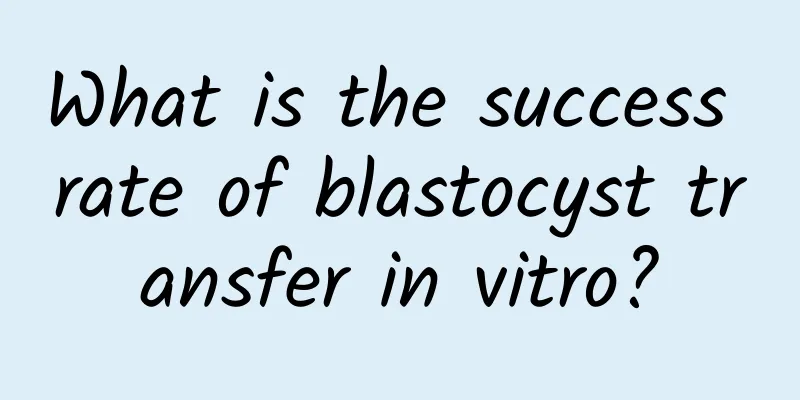Mild obstruction of lung function

|
Mild obstruction of lung function can be treated with non-drug methods. First, you need to quit smoking and drinking, then exercise to improve your breathing, and use high-pressure negative ion oxygen therapy to regulate your lungs. When lung function is mildly obstructed, you should avoid emotional excitement and relax your mental stress. You also need to adjust your diet and seek timely hospital treatment to avoid further aggravation of the condition. treat 1. Treatment during stable period Non-drug treatments are available: smoking cessation, exercise or pulmonary rehabilitation training, and influenza and pneumonia vaccinations. 2. Rehabilitation For example, physical therapy and high-pressure negative ion oxygen therapy are beneficial to the recovery of lung function in COPD patients. 3. Psychological adjustment A good mood will help patients face the disease positively, increase treatment compliance, and establish good interpersonal relationships, which will be more conducive to recovery from the disease. 4. Diet adjustment Eat more fruits and vegetables, you can eat meat, fish, eggs, milk, beans, and buckwheat. Talk less while eating, breathe harder and eat slower. Fat people should lose weight, and thin people should improve their nutrition and eat small meals frequently. 5. Long-term home oxygen therapy If there is respiratory failure, long-term low-flow oxygen inhalation is recommended, more than 15 hours a day. 6. Medication Existing drug treatments can reduce or eliminate patients' symptoms, increase activity tolerance, reduce the number and severity of acute attacks, and improve health status. Inhalation therapy is the first choice. Educating patients on the correct use of various inhalers and explaining the purpose and effects of treatment to patients will help them adhere to treatment. (1) Bronchodilators There are three types of bronchodilators commonly used in clinical practice: β2 receptor agonists, choline receptor blockers and methylxanthines, which have a synergistic effect when used in combination. (2) Inhaled corticosteroids: Patients with a history of recurrent exacerbations and severe airway obstruction and FEV1 < 50% of predicted value can use inhaled corticosteroids. (3) Expectorants and antitussives Expectorants are only used when the sputum is sticky and difficult to cough up, and regular use is not recommended. Antitussive drugs may not be conducive to sputum drainage and should be used with caution. (4) Antioxidants The use of antioxidants such as N-acetylcysteine and carbocysteine can dilute sputum, making it easier to cough up and reducing the frequency of recurrent exacerbations of the disease. 7. Treatment of acute exacerbation (1) The goal of oxygen inhalation is to maintain blood oxygen saturation at 88%~92%. (2) Bronchodilators: Inhaled short-acting bronchodilators, such as ipratropium bromide and salbutamol. (3) Systemic glucocorticoids The 2014 GOLD guideline update recommends methylprednisolone for 5 consecutive days. (4) Anti-infective drugs should be used in the following three situations: worsening dyspnea, increased sputum volume, coughing up purulent sputum; increased purulent sputum and other symptoms; need for mechanical ventilation. |
>>: Causes of airway obstruction
Recommend
What is hallucination?
Having hallucinations is a very common condition....
What to do if you have a headache on the left side
Many people experience sudden headaches in their ...
What are white spots on the face?
After getting acne on their face, many people will...
How to treat hormone allergic dermatitis? There are methods to treat dermatitis
Hormone allergic dermatitis refers to an allergic...
What is the best time to boil Chinese medicine?
Everyone must have read Chinese medicine. If ther...
Where is moxibustion most effective for fatty liver
Moxibustion is a method of traditional Chinese me...
The most powerful Chinese medicine prescription for cancer treatment
Any disease related to cancer will make people ex...
What can I eat to delay my period?
A healthy woman will have her period on time ever...
What are the symptoms of patent foramen ovale?
The foramen ovale is a relatively important tissu...
My ears are throbbing and hurting, what's going on?
If your ears are throbbing with pain, you should ...
Why does tooth root hurt when eating?
Because eating is a very happy thing, but if oral...
There is a tumor in the nasopharynx_What may the tumor in the nasopharynx be
When people find swelling in their nasal cavity a...
Prostatic hyperplasia
Prostatic hyperplasia is a very common disease in...
Chive seeds Yanhuang
Leek seed Yanhuang is a food made from leek seeds...
How are warts formed?
Warts are mainly growths on the skin surface caus...









